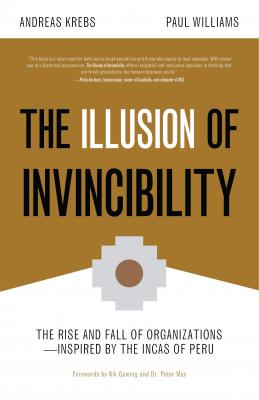The Illusion of Invincibility. Paul Williams
Читать онлайн.| Название | The Illusion of Invincibility |
|---|---|
| Автор произведения | Paul Williams |
| Жанр | Поиск работы, карьера |
| Серия | |
| Издательство | Поиск работы, карьера |
| Год выпуска | 0 |
| isbn | 9781642501445 |
Rules of Thumb for Job Interviews
The amount of time a recruiting manager spends talking (about) himself during an interview is directly proportional to his level of seniority in the organization.
The capacity of a manager to listen carefully to a candidate during an interview is inversely proportional to his level of seniority in the organization.
The more senior a manager is, the greater the probability that he will answer the question that he has just asked himself, rather than waiting for the candidate to speak.
The more a manager speaks (about) himself during the interview, the better his impression will be of the candidate.
While we’ve discussed the issues concerning human perception and intuition, and addressed the dangers of poor preparation, there is another, equally serious and problematic issue with recruitment which we have not yet mentioned at all, namely the self-interest of the department head which, shocker, is not always driven solely by the best interests of the business. “As hire As, Bs hire Cs” is a well-known phenomenon; a poor boss is seldom interested in bringing unnecessary competition into their area of responsibility and usually prefers mediocrity, which they can more easily control. And if by chance a top performer lands in their department, then they are unlikely to hang around for very long. Nevertheless, a lot of organizations actually do seem to manage to just muddle along. It has been shown often enough that a performance-driven company culture is one of the cornerstones of sustainable business success (see Probst and Raisch, The Logic of Business Failure, 2004). The question is not whether we “manage to muddle along,” but rather “How much better could it be if we actually had the right people in the key positions?” Unfortunately (or perhaps fortunately), it can take quite some time, particularly in large companies, for the full impact of poor personnel decisions to be reflected in the bottom line. And, equally, managers are often slow to correct mistakes. Let’s not underestimate the loss of potential business brought about by having the wrong person in an important position for too long.
So, what might be an alternative to the traditional job interview? Well, for one thing, it is certainly not following the popular trend of outsourcing the whole process to external consultants, even if being able to blame them when things don’t work out is an attractive proposition. There is no doubt that the standard array of techniques such as personality type and interaction style tests, assessment centers, and structured interviews have their place. But these can only work well if all those involved, both internal staff and external consultants, have agreed on a detailed brief for the position to be filled and have the full support of senior managers within the business. When it comes to recruitment and development from within the company, especially for key positions and the selection of next-generation leaders, it is advisable to refer to internal assessments, 360-degree feedback tools, and experiences gained from personal interactions over many years, in favor of management audits run by external consultants. And it’s downright negligent when top management steers clear of important personnel decisions, thinking these are better left to the HR department and the relevant line managers. An experienced CEO we’ve worked with for many years once said, “The most important decision we make as a company is who we hire and then systematically develop.” We thoroughly agree!
Are You a Consumer or a Producer of Talent?
A large American corporation introduced a special remuneration system for its board members. Twenty percent of variable income was linked to the “talent” balance of each director. Was their division able to supply talent for the top two hundred senior management positions, or did they have to recruit externally for crucial vacancies or even draw on talent from other divisions? The key question was “Are you a net producer or a net consumer of talent?”
This process proved to be very effective, not only in terms of remuneration, but also because it helped to establish consistent talent development as a core element in the corporation’s business philosophy. As is so often the case, “What you measure is what you get!”
One of our interviewees elegantly describes how a top manager can nurture talent and benefit from the process along the way. His following statement is reminiscent of the recruitment method the Inca lords used. They’d deploy to the various regions graduates of their elite Yachaywasi Academy who’d been selected as students from either their own or the region’s upper class.
From Dr. Alexander von Preen, CEO of Intersport eG:
Конец ознакомительного фрагмента.
Текст предоставлен ООО «ЛитРес».
Прочитайте эту книгу целиком, купив полную легальную версию на ЛитРес.
Безопасно оплатить книгу можно банковской картой Visa, MasterCard, Maestro, со счета мобильного телефона, с платежного терминала, в салоне МТС или Связной, через PayPal, WebMoney, Яндекс.Деньги, QIWI Кошелек, бонусными картами или другим удобным Вам способом.
